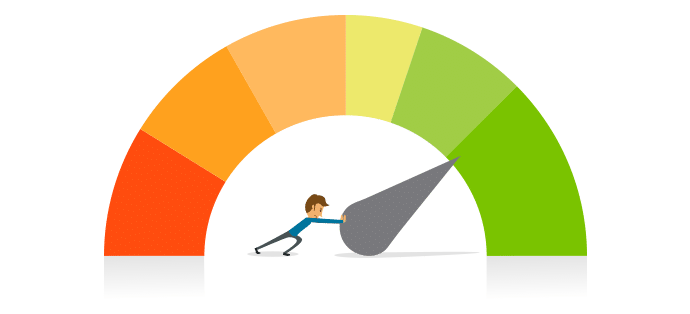Home Loan

Making Your Dream Home a Reality: The Ultimate Home Loan Guide
Buying a home is a dream that most people have. However, the high costs of purchasing a home can make it daunting. This is where a home loan can be of immense help. It is the money taken to buy a house or property. In this guide, we will talk about what a home loan is, the benefits of home loans, the documents required, eligibility criteria, and the current offers available for Housing Loans.
What is a Home Loan?
A home loan is a loan amount taken to purchase a home or property. The loan is secured against the property, which means that the property acts as collateral for the loan. The borrower has paid back the loan amount and interest in instalments over a specified period. The repayment period can range from 5 to 30 years, depending on the lender's terms and conditions.
Personal loans come with a fixed interest. The lending parties take a small amount as a processing fee. The repayment options are auto debit and promissory notes like pay by cheque and cash. Personal Loans come under non-secured loan liabilities in a bank's retail asset product group. The loans are classified as low-ticket and high-ticket.
Types of Home Loan
Several types of home loans are available depending on the loan's purpose.
Purchase Loan
This home loan is used to buy a new home or property. The loan amount can vary based on the cost of the property and other factors like your credit score, income, and repayment capacity.
Construction Loan
This type of home loan is used for the construction of a new home. The loan is disbursed in instalments as per the progress of the construction work.
Balance Transfer (BT) + Top-Up Loan
A balance transfer loan allows you to transfer your existing home loan to another lender who offers lower interest rates. You can also take a top-up loan on the existing home loan amount to finance other expenses like the home renovation or education.
Top-Up Loan
This type of loan allows you to borrow additional money on top of your existing home loan amount. It is used for home renovation, education, medical expenses, or to meet any other financial requirement.
Home Improvement Loan
This type of loan is specifically designed for home renovation and improvement purposes. The loan amount is based on the renovation cost and can be availed for minor and major repairs.
Home Extension Loan
This type of loan is used to finance the extension or expansion of your existing home.
NRI Home Loan
This type of loan is designed for Non-Resident Indians (NRIs) who want to buy a property in India. The loan is disbursed in Indian Rupees and can be availed for purchasing a new home or renovating an existing property.
Home Loan Balance Transfer with Top-Up
This type of loan allows you to transfer your existing Housing Loan to another lender who offers lower interest rates and also enables you to take a top-up loan on the existing loan amount.
Benefits of Home Loan
There are various benefits of taking a home loan, some of which are as follows:
1. Tax Benefits
One benefit of taking a home loan is that it offers tax benefits. The interest paid on the housing loan is eligible for tax deduction under section 24 of the Income Tax Act 1961. Additionally, the principal amount repaid on the home loan is suitable for deducing tax under section 80C of the Income Tax Act, 1961.
2. Low-Interest Rates
Home loans offer lower interest rates than most other loans. The interest rate on a housing loan depends on various factors, like the borrower's credit score, the loan amount, and the repayment period. Moreover, the interest rates on such loans are fixed, meaning that the borrower knows exactly how much they must pay each month.
3. Long Repayment Period
Home loans come with a more extended repayment period than most other loans. This allows the borrower to repay the loan in smaller instalments over a more extended period.
4. Flexibility
Home loans offer flexibility regarding the repayment period, loan amount, and interest rates. Borrowers can choose the loan amount, repayment period, and interest rates that suit their needs and financial situation.
Documents for Applying for a Home Loan
The following are the essential documents required to apply for a housing loan online:
Identity Proof- Passport, PAN Card, Voter ID, Driving License, Aadhaar Card, or other government-issued ID proof.
Address Proof - Utility bills (electricity, water, gas), bank statements, rental agreement, or any other government-issued address proof.
Income Proof - Salary slips, bank statements, income tax returns, Form 16, or any other documents that verify the applicant's income.
Employment Proof - Employment letter, business card, or other documents verifying the applicant's employment status.
Essential Eligibility Criteria for Applying for a Home Loan
The following are the essential eligibility criteria for applying for a home loan:
Age
The borrower must be at least 21 years old and not more than 65 years old at the time of loan maturity.
Credit Score
The borrower must have a good credit score of at least 650 or above.
Income
The borrower must have a stable source of income and meet the lender's minimum income requirements.
Employment Status
The borrower must have a formidable job and must have been employed with the current employer for at least two years.
Current Offers on Home Loans
The current offers on home loans are as follows:
Low-Interest Rates
Most banks and financial institutions currently offer home loans at low-interest rates. This is an excellent opportunity for borrowers to take advantage of low rates and save on interest expenses.
Waiver of Processing Fees
Some banks and financial institutions waive processing fees on home loans. This means that borrowers do not have to pay additional fees when availing of a housing loan.
Flexible Repayment Options
Many banks and financial institutions offer flexible repayment options, allowing borrowers to choose the repayment period that suits them best. This means borrowers can opt for a longer or shorter repayment period per their financial situation.
Balance Transfer Facility
Some banks and financial institutions offer balance transfer facilities, allowing borrowers to transfer their existing home loan to another lender at a lower interest rate.
FAQs on Home Loan




